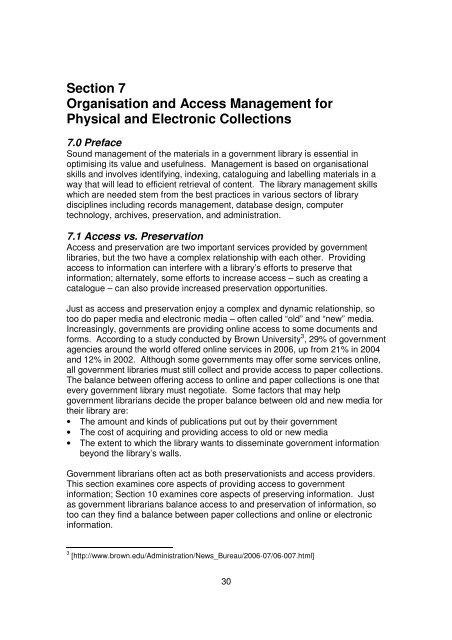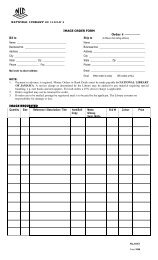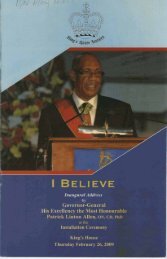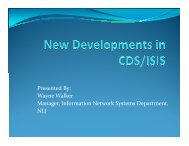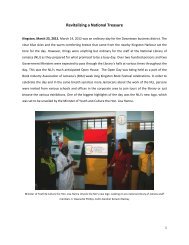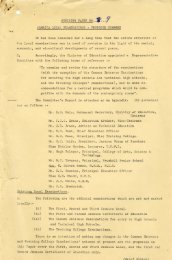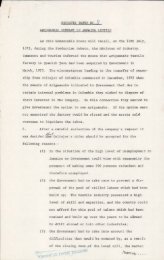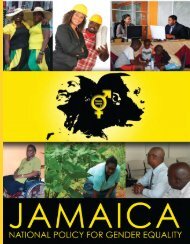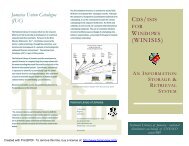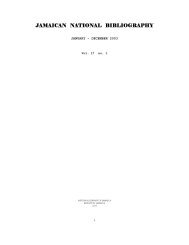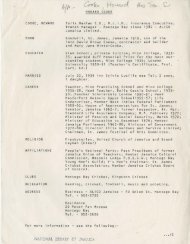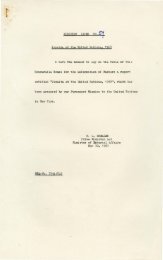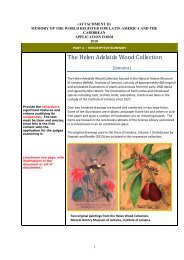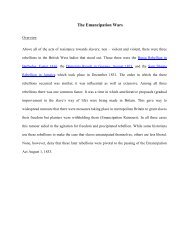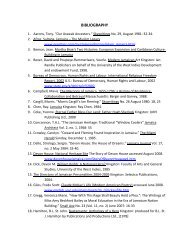Guidelines for Libraries of Government Departments - IFLA
Guidelines for Libraries of Government Departments - IFLA
Guidelines for Libraries of Government Departments - IFLA
Create successful ePaper yourself
Turn your PDF publications into a flip-book with our unique Google optimized e-Paper software.
Section 7<br />
Organisation and Access Management <strong>for</strong><br />
Physical and Electronic Collections<br />
7.0 Preface<br />
Sound management <strong>of</strong> the materials in a government library is essential in<br />
optimising its value and usefulness. Management is based on organisational<br />
skills and involves identifying, indexing, cataloguing and labelling materials in a<br />
way that will lead to efficient retrieval <strong>of</strong> content. The library management skills<br />
which are needed stem from the best practices in various sectors <strong>of</strong> library<br />
disciplines including records management, database design, computer<br />
technology, archives, preservation, and administration.<br />
7.1 Access vs. Preservation<br />
Access and preservation are two important services provided by government<br />
libraries, but the two have a complex relationship with each other. Providing<br />
access to in<strong>for</strong>mation can interfere with a library’s ef<strong>for</strong>ts to preserve that<br />
in<strong>for</strong>mation; alternately, some ef<strong>for</strong>ts to increase access – such as creating a<br />
catalogue – can also provide increased preservation opportunities.<br />
Just as access and preservation enjoy a complex and dynamic relationship, so<br />
too do paper media and electronic media – <strong>of</strong>ten called “old” and “new” media.<br />
Increasingly, governments are providing online access to some documents and<br />
<strong>for</strong>ms. According to a study conducted by Brown University 3 , 29% <strong>of</strong> government<br />
agencies around the world <strong>of</strong>fered online services in 2006, up from 21% in 2004<br />
and 12% in 2002. Although some governments may <strong>of</strong>fer some services online,<br />
all government libraries must still collect and provide access to paper collections.<br />
The balance between <strong>of</strong>fering access to online and paper collections is one that<br />
every government library must negotiate. Some factors that may help<br />
government librarians decide the proper balance between old and new media <strong>for</strong><br />
their library are:<br />
• The amount and kinds <strong>of</strong> publications put out by their government<br />
• The cost <strong>of</strong> acquiring and providing access to old or new media<br />
• The extent to which the library wants to disseminate government in<strong>for</strong>mation<br />
beyond the library’s walls.<br />
<strong>Government</strong> librarians <strong>of</strong>ten act as both preservationists and access providers.<br />
This section examines core aspects <strong>of</strong> providing access to government<br />
in<strong>for</strong>mation; Section 10 examines core aspects <strong>of</strong> preserving in<strong>for</strong>mation. Just<br />
as government librarians balance access to and preservation <strong>of</strong> in<strong>for</strong>mation, so<br />
too can they find a balance between paper collections and online or electronic<br />
in<strong>for</strong>mation.<br />
3 [http://www.brown.edu/Administration/News_Bureau/2006-07/06-007.html]<br />
30


